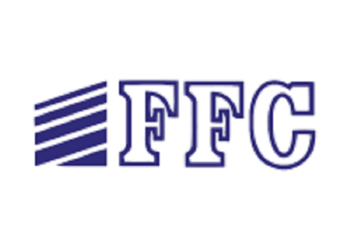Islamabad – In a development that has sparked criticism and raised serious questions about transparency, it has been revealed that the federal government has prevented the Federal Board of Revenue (FBR) from conducting its customary technical briefing on the newly proposed Finance Bill for fiscal year 2025-26. This move, aimed at avoiding public scrutiny, has stirred concerns among economic experts, journalists, and the business community alike.
The revelation follows the presentation of the federal budget 2025-26 in Parliament, which includes significant amendments to existing tax laws, the imposition of hidden taxation, and a notable expansion of FBR’s powers. By curbing the FBR’s ability to explain and clarify these measures publicly, the government appears to be avoiding backlash over potentially unpopular fiscal policies.
A Departure from Tradition: FBR Silenced in Budget Communication
Traditionally, after the annual federal budget is presented, FBR officials conduct technical briefings at FBR headquarters in Islamabad. These sessions are designed to:
- Explain tax policy changes,
- Clarify provisions of the Finance Bill,
- Share the expected impact on taxpayers and revenue,
- And address ambiguities for both journalists and the general public.
These briefings serve a vital role in enabling public discourse and transparency in fiscal matters. However, for the first time in years, this open line of communication has been intentionally shut down.
A senior official from the FBR, speaking on condition of anonymity, confirmed, “This year, we were instructed by the federal government not to hold the usual technical briefing for the media.” The official declined to speculate on the exact reasons but acknowledged that the move was “unprecedented and unusual.”
Finance Bill 2025-26: Controversial Tax Changes Spark Concern
The Finance Bill 2025-26 introduces a range of amendments to Pakistan’s tax structure. While the government touts these changes as necessary to meet IMF obligations, increase tax-to-GDP ratio, and reduce fiscal deficit, analysts and business leaders have pointed out several areas of concern:
- New indirect taxes that disproportionately affect low and middle-income earners,
- Hidden tax measures embedded within the language of the bill,
- Expansion of withholding tax regimes,
- And enhanced powers for tax officials, raising fears of harassment and misuse.
Without a public technical explanation from the FBR, these issues remain largely misunderstood by the public and inadequately addressed in the media.
Increased FBR Powers Raise Accountability Issues
One of the most striking aspects of the Finance Bill is the expansion of FBR’s enforcement powers. According to the new provisions:
- FBR officers can now initiate audits and inquiries with fewer procedural requirements.
- The discretionary powers of tax authorities have been expanded, especially concerning business premises inspections, freezing of bank accounts, and issuing recovery notices.
Critics argue that these increased powers must be balanced by greater oversight, accountability, and clarity — responsibilities traditionally ensured through public briefings. In the absence of such explanations, public trust in tax administration may erode further.
Undisclosed Tax Measures Fuel Distrust
Insiders suggest that the government’s decision to gag the FBR may be linked to a range of hidden taxation measures embedded within the Finance Bill. These include:
- Increases in sales tax rates on basic commodities,
- Introduction of new surcharges and levies without detailed breakdowns,
- Withdrawal of exemptions that previously benefited key sectors such as agriculture and small businesses.
Had the FBR been allowed to conduct its technical briefing, journalists and economic experts could have questioned and interpreted the real impact on consumers and businesses. Instead, the silence has fueled speculation and eroded confidence in the government’s fiscal transparency.
The Role of FBR Briefings: A Tool for Transparency and Clarity
Historically, FBR briefings have played a crucial role in shaping public understanding of budgetary and tax measures. These sessions provide:
- Clarification of ambiguous clauses in tax laws,
- Justification for new tax initiatives,
- Estimates of revenue targets and taxpayer impact,
- And a platform for journalistic inquiry and accountability.
With the FBR prevented from fulfilling this role, many experts fear that misinterpretations, rumors, and misinformation will fill the vacuum, leading to confusion among taxpayers and investors.
Business Community Reacts to Government Secrecy
Pakistan’s business community, already grappling with inflation, currency depreciation, and energy shortages, has expressed concern over the lack of transparency in the budget process.
Federation of Pakistan Chambers of Commerce and Industry (FPCCI) officials and other trade bodies have noted:
- The absence of consultation on tax measures,
- Concerns over surprise taxation without clear justification,
- And fears that increased enforcement powers may lead to misuse and pressure tactics.
“The business community has the right to know how the new tax regime affects them,” said one Karachi-based industrialist. “Preventing the FBR from explaining its policies is a recipe for mistrust.”
Media and Civil Society Demand Transparency
Journalists and civil society groups have also raised alarms over this development. Pakistan’s media has traditionally played a watchdog role during budget season, interpreting technical documents for the public and holding policymakers accountable.
By stopping the FBR from engaging with the media, critics argue that the government has muzzled a critical voice and attempted to suppress informed economic discourse.
Several media organizations have jointly demanded:
- The immediate release of detailed tax implementation notes,
- A resumption of FBR briefings to ensure clarity and accountability,
- And greater engagement with civil society stakeholders in the legislative process.
Link to IMF Conditions?
Some experts have linked the government’s fiscal strategy — including its reluctance to fully disclose tax measures — to its commitments under ongoing negotiations with the International Monetary Fund (IMF). Pakistan is seeking a new Extended Fund Facility (EFF) worth billions of dollars.
The IMF typically demands:
- Tax revenue expansion,
- Broadening of the tax base,
- Cutbacks on subsidies,
- And elimination of tax exemptions.
While necessary from a macroeconomic perspective, these reforms are politically unpopular and can lead to public unrest if not transparently communicated. By silencing the FBR, the government may be trying to avoid early backlash while complying quietly with IMF mandates.
Opposition Parties Call for Parliamentary Inquiry
In the National Assembly, opposition lawmakers have demanded an inquiry into why the FBR was prevented from conducting its technical briefing. Members of the Pakistan Peoples Party (PPP) and Pakistan Tehreek-e-Insaf (PTI) have questioned the motives behind the gag order and have accused the government of hiding unpopular fiscal policies from the electorate.
“If the government is proud of its budget, why is it afraid of letting FBR explain it?” asked a PTI lawmaker during a press conference.
Conclusion: A Troubling Shift Away from Fiscal Transparency
The federal government’s decision to silence the FBR’s voice during budget season represents a troubling shift in how fiscal policy is communicated in Pakistan. At a time when economic hardships are mounting, and trust in institutions is fragile, the need for clarity, transparency, and open dialogue has never been greater.
By avoiding open discussion on the Finance Bill 2025-26, especially its controversial tax measures and expanded enforcement clauses, the government risks losing public confidence, damaging its credibility, and further polarizing an already strained economy.

























